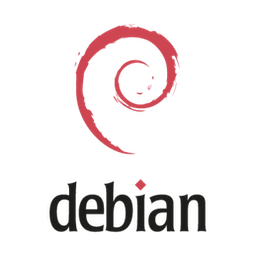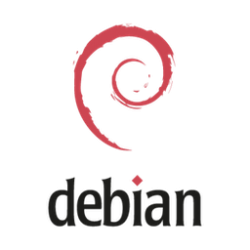
Python has become one of the most popular programming languages in the world, powering everything from web applications to machine learning projects. If you’re running Debian Linux, installing Python correctly is crucial for your development workflow. This comprehensive guide will walk you through multiple methods to install Python on Debian, ensuring you get the setup that best fits your needs.
Whether you’re a beginner looking for a quick installation or an advanced user needing the latest Python features, we’ve got you covered. By the end of this guide, you’ll have Python running smoothly on your Debian system with all the tools you need to start coding.
Prerequisites Before Installing Python on Debian
Before diving into the installation process, let’s ensure your system is ready. You’ll need:
- A Debian system (versions 10, 11, or 12)
- Root or sudo privileges
- Active internet connection
- Basic familiarity with terminal commands
It’s worth noting that Debian 12 comes with Python 3.11.2 pre-installed, while Debian 11 includes Python 3.9.2. However, these might not be the latest versions available, which is why we’ll explore different installation methods.
Method 1: Installing Python from Debian Repository (Quick Method)
Update Your Package List
The fastest way to install Python on Debian is through the official package repository. Start by updating your package list to ensure you’re getting the most recent available version:
sudo apt updateThis command refreshes your local package database with the latest information from Debian repositories.
Install Python 3 from Default Repository
Now install Python 3 using the apt package manager:
sudo apt install python3This command downloads and installs Python 3 along with its essential dependencies. The installation process typically takes just a few minutes, depending on your internet connection.
Verify the Installation
Confirm that Python was installed successfully by checking the version:
python3 --versionYou should see output similar to Python 3.11.2 on Debian 12 or Python 3.9.2 on Debian 11. This method gives you a stable, tested version that works seamlessly with your Debian system.
Method 2: Installing Latest Python from Source Code
If you need the absolute latest Python version with all the newest features, compiling from source is your best option. This method gives you Python 3.13 or whatever the current release might be.
Install Required Dependencies
Before compiling Python, install all necessary development tools and libraries:
sudo apt install -y make build-essential libssl-dev zlib1g-dev libbz2-dev libreadline-dev libsqlite3-dev wget curl llvm libncursesw5-dev xz-utils tk-dev libxml2-dev libxmlsec1-dev libffi-dev liblzma-devThese packages provide the compilers, libraries, and tools needed to build Python from source.
Download Python Source Code
Visit the official Python website to find the latest version, then download it. For example, to download Python 3.13.0:
wget https://www.python.org/ftp/python/3.13.0/Python-3.13.0.tgzAlways check python.org for the most current version number and update the URL accordingly.
Extract and Configure Python
Extract the downloaded archive and navigate to the directory:
tar xzf Python-3.13.0.tgz
cd Python-3.13.0Configure the build with optimizations enabled:
./configure --enable-optimizationsThe --enable-optimizations flag runs performance tests and optimizes the Python binary, though it increases compilation time.
Compile and Install Python
Compile the source code using all available CPU cores:
make -j $(nproc)Install Python without replacing the system default:
sudo make altinstallUsing altinstall instead of install prevents overwriting your system’s default Python version, which could break system tools that depend on it.
Verify Source Installation
Check that your new Python version is available:
python3.13 --versionYou should see Python 3.13.0 (or whatever version you installed), confirming the successful installation.
Method 3: Installing Python via Deadsnakes PPA
The Deadsnakes PPA provides additional Python versions not available in the default Debian repositories, making it perfect for testing different Python versions.
Add Deadsnakes Repository
First, install the required software:
sudo apt install software-properties-commonAdd the Deadsnakes PPA:
sudo add-apt-repository ppa:deadsnakes/ppaUpdate your package list:
sudo apt updateInstall Specific Python Versions
Now you can install specific Python versions. For example, to install Python 3.8:
sudo apt install python3.8Verify the installation:
python3.8 --versionThis method is particularly useful when you need to maintain compatibility with older projects or test your code across different Python versions.
Installing pip Package Manager
Python’s package installer, pip, is essential for installing third-party libraries. If it’s not already installed, add it:
sudo apt install python3-pipFor source-compiled Python versions, pip is usually included automatically. Verify pip installation:
pip3 --versionCreating Python Virtual Environments
Virtual environments are crucial for managing project dependencies without conflicts. Install the venv module:
sudo apt install python3-venvCreate a virtual environment:
python3 -m venv myprojectActivate the environment:
source myproject/bin/activateWhen active, you’ll see (myproject) in your terminal prompt, indicating you’re working within the virtual environment.
Managing Multiple Python Versions
When you have multiple Python versions installed, you can manage them using the update-alternatives system:
sudo update-alternatives --install /usr/bin/python python /usr/bin/python3.9 1
sudo update-alternatives --install /usr/bin/python python /usr/bin/python3.11 2Switch between versions:
sudo update-alternatives --config pythonThis system lets you easily switch your default Python version system-wide.
Setting Python as Default Version
To set a specific Python version as default for your user account, create an alias in your .bashrc file:
echo "alias python='/usr/bin/python3.11'" >> ~/.bashrc
source ~/.bashrcThis change affects only your user account, not the entire system.
Common Installation Issues and Troubleshooting
Permission Denied Errors
If you encounter permission errors, ensure you’re using sudo for system-wide installations or check that your user has the necessary privileges.
Missing Dependencies
Compilation errors often result from missing development packages. Double-check that you’ve installed all required dependencies listed in the source installation section.
Version Conflicts
When multiple Python versions exist, specify the exact version in your commands (e.g., python3.11 instead of just python3) to avoid confusion.
Always verify your installation with version checks and consider running Python’s test suite for source installations:
python3.11 -m testBest Practices for Python on Debian
- Use virtual environments for all projects to avoid dependency conflicts
- Keep your system Python intact – never remove or modify the system’s default Python installation
- Install packages with pip rather than mixing pip and apt for Python packages
- Update regularly but test thoroughly before upgrading production systems
- Document your setup to ensure reproducible environments across team members
Following these practices will save you countless hours of troubleshooting and ensure stable Python development environments.
Uninstalling Python from Debian
If you need to remove Python versions:
For repository-installed Python:
sudo apt remove python3.8For source-compiled versions, manually remove files from /usr/local/bin/ and /usr/local/lib/python3.x/.
Never uninstall the system’s default Python version, as it’s required for many system tools.
Frequently Asked Questions (FAQs)
1. What version of Python comes pre-installed with Debian 12?
Debian 12 comes with Python 3.11.2 pre-installed by default. However, you can install newer versions using the methods described in this guide.
2. Should I use the system Python or install a separate version?
For development work, it’s recommended to install a separate version or use virtual environments. The system Python should remain untouched as many system tools depend on it.
3. Can I have multiple Python versions installed simultaneously?
Yes, you can install multiple Python versions on Debian. Use the update-alternatives system or specify exact versions in your commands (like python3.9 or python3.11) to manage them.
4. Is it safe to compile Python from source on Debian?
Yes, compiling Python from source is safe when you use make altinstall instead of make install. This preserves your system’s default Python installation.
5. How do I check which Python versions are installed on my system?
Run ls /usr/bin/python* to see all available Python executables, or use python3 --version to check your default version.
